Short skirts and big swords in Valis: The Fantasm Soldier
Valis is a series I’ve been curious about for the longest time, but it’s always been a bit daunting to get into. Not only can copies of the game for its various original host platforms set you back a pretty penny, there are also a whole bunch of different versions out there, some of which are regarded as better than others.
Now, with the Renovation Collection 1 cartridge for the Evercade retro gaming system, I can check out the Mega Drive incarnation of the first game and see… well, one interpretation of where it all began, at least. Was it worth the wait? Well, yes — but with a few caveats modern players in particular should bear in mind.
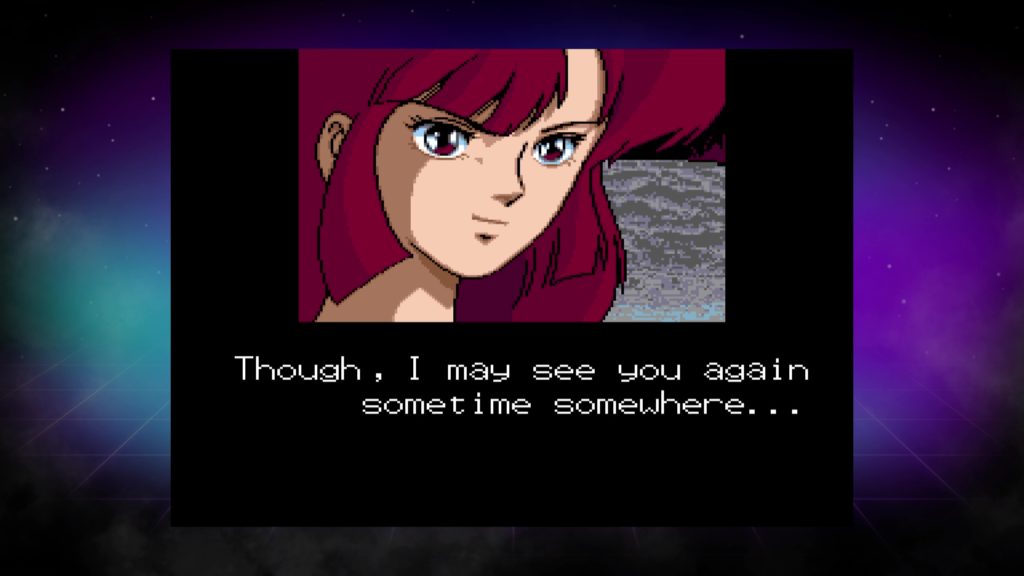
In Valis, you take on the role of Japanese schoolgirl Yuko Ahso. Following an out-of-season rainstorm and a mysterious conversation with her best friend Reiko, who claims to be “leaving town for a while”, Yuko finds herself in possession of a shiny magic sword known as the Valis sword.
Spurred into action by a mysterious voice — and not quite sure if she’s dreaming or not — she charges into battle with the sword at her side and eventually finds herself pulled into “fantasy world” (retconned to “Dreamland” in subsequent games), where she is tasked by Queen Valia (owner of said mysterious voice) with defeating the dark lord ROGLES (whose name is always in capitals, in true “translated ’90s Japanese game” tradition). ROGLES is throwing Yin and Yang all out of whack, you see, so of course only Yuko can fix the problem, and Valia will even throw in a sexy new magical girl outfit for free.
What then follows is a platform action game in which you take control of Yuko as she proceeds through various locales across this strange other world, defeating enemies, challenging powerful bosses and taking their magic for her own. The ultimate aim, of course, is to destroy ROGLES once and for all, and this should bring peace back to both the fantasy world and Yuko’s own human world.
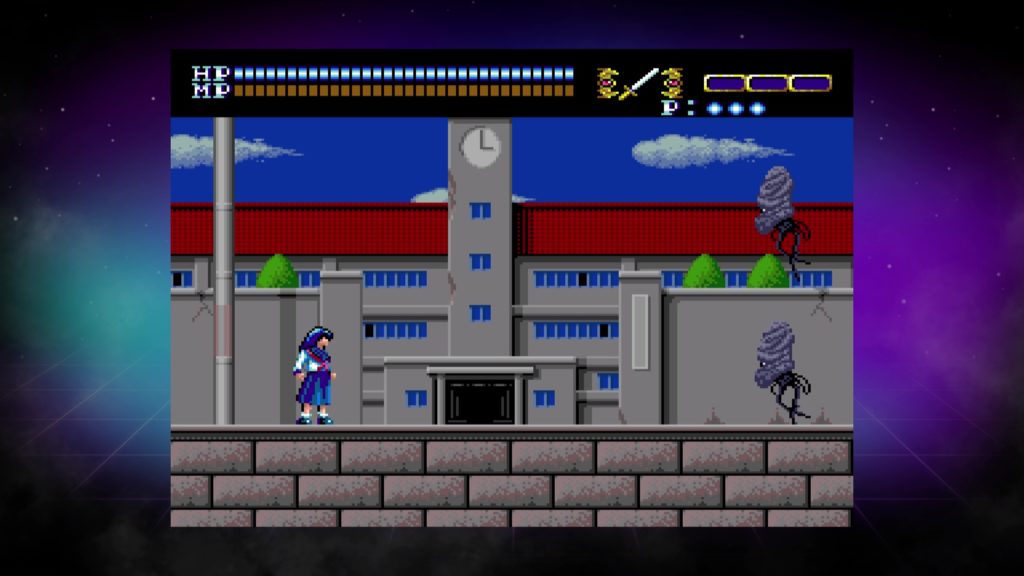
Valis’ mechanics are pretty simple, though they do take a little getting used to. By itself, the Valis sword is almost completely useless; it’s kind of hard to tell if it’s really useless or if it’s just the game’s dodgy collision detection making it appear that way. Either way, though, you’ll want to nab yourself an upgrade as soon as possible — and these can often be found in floating red gems that appear throughout the stages.
Initially, grabbing an upgrade will allow you to fire a single shot forwards (which can subsequently be upgraded to a double shot then a three-way spread shot) but later stages introduce more powerful and varied weapons. Each new one tends to be slightly more powerful in terms of damage dealt than the last, but they also have some mechanical differences that may cause you to consider whether that additional power is worth it.
The second type of sword upgrade, for example, fires out a large laser blast, but this disappears after a short range; while this deals more damage if it hits, it means you need to get closer to your opponents, which isn’t always desirable when it comes to bosses. Other types include the ability to fire homing arrows, high-speed powerful holy blasts and what appear to be magic “grenades” that fire out ahead of you, then explode for repeated damage for a short period.
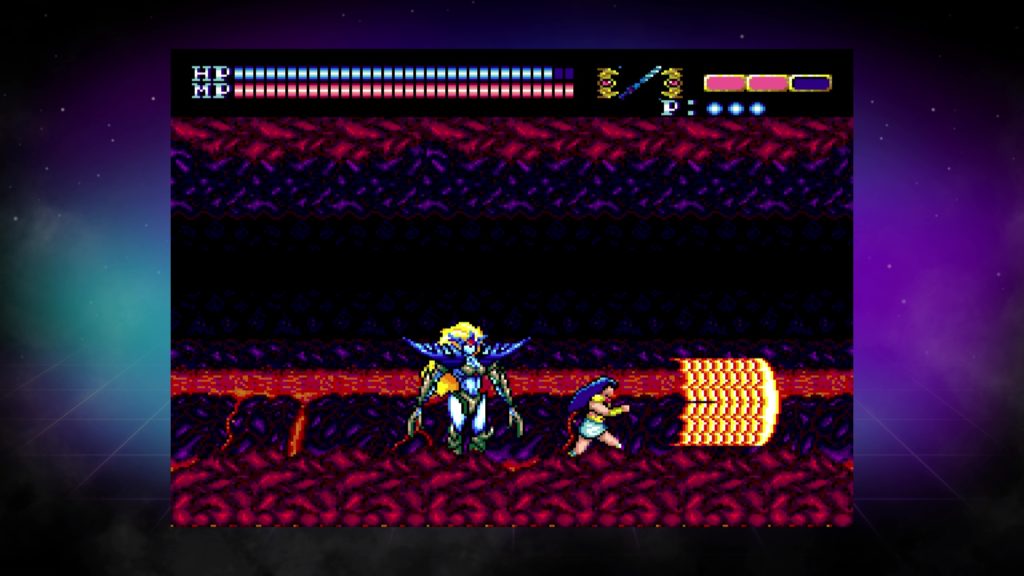
With all this in mind, you may well find yourself quickly revising your opinion of Valis as being more of a “run and gun” sort of platformer than a hack-and-slash melee-centric title. And to a certain extent you’d be right — but it’s also worth noting that there’s no real incentive to kill everything along the way, other than to keep Yuko safe.
There’s no scoring system, enemies don’t drop items — all health, magic and sword upgrade pickups come from the aforementioned red gems — and more often than not going out of your way to kill something can end up putting you in more danger. But one gets the distinct impression that Valis was designed to take advantage of gamers’ natural impulses; get too greedy for worthless kills and you may well put yourself in a more difficult situation! There’s a lesson to be learned there, for sure.
The platforming throughout is, for the most part, fairly basic, with levels being fairly linear. One stage, set inside a volcano, has a somewhat labyrinthine quality to it, and ROGLES’ castle has a few alternative routes through it that can net you some additional power-ups, but for the most part you’re proceeding from left to right until you reach a boss.
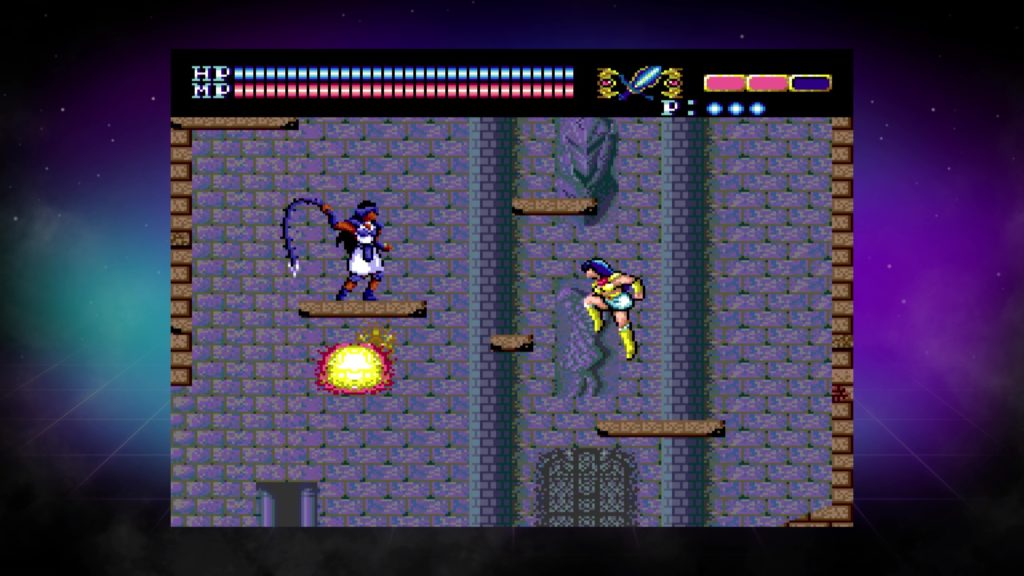
Yuko is capable of doing both a regular and a high jump, with the latter often being necessary to progress; the implementation of the latter on Up+Jump can feel a little cumbersome at times, making one wonder why the jump height and strength wasn’t just implemented according to how long you held the button, like many other games.
In fact, Valis in general feels quite cumbersome, and this is likely where those coming to the game from a modern perspective may find themselves struggling. The whole thing runs at a fairly slow pace relative to other action games of the period, and the occasional cutscenes, although impressive both in terms of visuals and their ambition in storytelling for the period, feature the most excruciatingly slow text scroll speed since the original Final Fantasy’s endless-feeling “the time for their journey had come” introduction sequence. And no, you can’t press a button to speed them up.
You can skip them, at least — but they are worth watching at least once just to get an idea of the game’s overall surprisingly well-crafted narrative. They’re also highly representative of the quasi-cinematic approach that a lot of Renovation-published titles went for — particularly if the games in question originated with Wolf Team (who would later become Namco’s Tales studio), as Valis did. The Mega Drive port of Valis may have been developed by Riot rather than Wolf Team themselves, but Wolf Team’s influence is still very much keenly felt through the cutscenes.
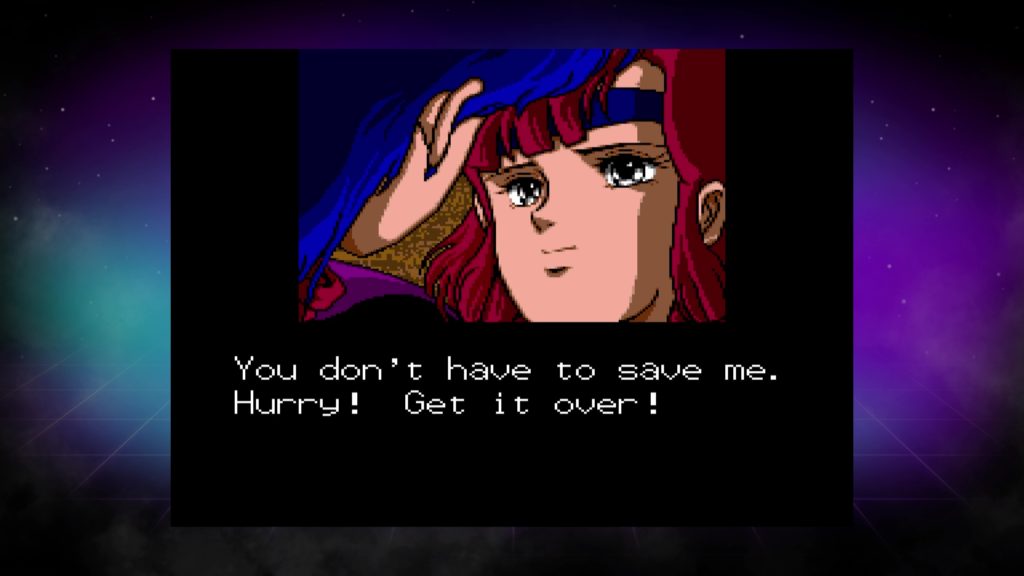
Valis is also very easy, meaning you’ll likely romp through the entire game in an hour or less, without even needing to use a continue. There’s nothing inherently wrong with that in itself these days, but it is worth noting for those coming into the game expecting a more epic adventure — particularly as there’s little reason to return once you’ve beaten it, besides simply to experience it again.
The lack of scoring system means that there’s no high score chasing, and there are no difficulty settings either; the only reason you might want to come back to Valis — outside of just enjoying it again — is to try and one-credit clear it if you missed out on that first time around.
These criticisms aside, Valis is a worthwhile use of your time. It represents an interesting period in Japanese gaming history, where some developers were just starting to get to grips with the idea of telling stories in types of game other than RPGs, and the actual gameplay is enjoyable enough amid all the clunkiness. The anime-style pixel art in the cutscenes is still gorgeous, the music is great (although the complete lack of it for a significant portion of the intro is rather disconcerting) and, as easy as the game is, it’s still satisfying to beat; ROGLES doesn’t go down without quite a fight, it has to be said.
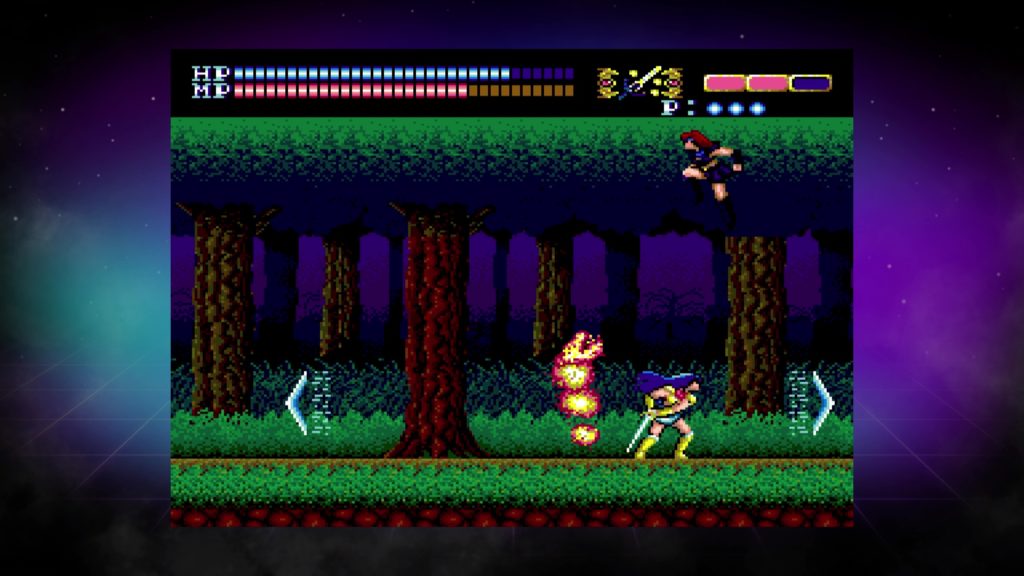
All in all, as a centrepiece to the Renovation Collection 1 cartridge for Evercade, Valis is a good game. Yuko is an iconic character in her own right — albeit one with more of a cult following than mainstream success — and it’s always fascinating to see where a long-running series like this started off.
Evercade’s Renovation Collection 1 cartridge is available to order now. Screenshots from the Evercade version running on Evercade VS.
Join The Discussion
Rice Digital Discord
Rice Digital Twitter
Rice Digital Facebook
Or write us a letter for the Rice Digital Friday Letters Page by clicking here!
Disclosure: Some links in this article may be affiliate links, which means we may earn a small commission if you make a purchase after clicking on them. This is at no additional cost to you and helps support Rice Digital!
- Letter from the Editor: passing the torch - June 30, 2023
- Super Woden GP 2 is looking promising - June 30, 2023
- Inti Creates is making a 32 bit-style Love Live action platformer - June 26, 2023







